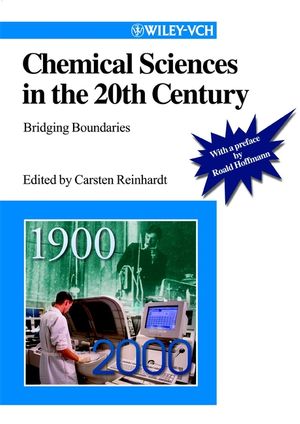Chemical Sciences in the 20th Century: Bridging BoundariesISBN: 978-3-527-30271-0
Hardcover
297 pages
May 2001
 This is a Print-on-Demand title. It will be printed specifically to fill your order. Please allow an additional 15-20 days delivery time. The book is not returnable.
|
||||||
Chemistry in the last century was characterized by spectacular growth and advances, stimulated by revolutionary theories and experimental breakthroughs. Yet, despite this rapid development, the history of this scientific discipline has achieved only recently the status necessary to understand the effects of chemistry on the scientific and technological
culture of the modern world.
This book addresses the bridging of boundaries between chemistry and the other "classical" disciplines of science, physics and biology as well as the connections of chemistry to
mathematics and technology.
Chemical research is represented as an interconnected patchwork of scientific specialties, and this is shown by a mixture of case studies and broader overviews on the history of organic chemistry, theoretical chemistry, nuclear- and cosmochemistry, solid state chemistry, and biotechnology. All of these fields were at the center of the development of twentieth century chemistry, and the authors cover crucial topics such as the emergence of new subdisciplines and
research fields, the science-technology relationship, and national styles of scientific work.
This monograph represents a unique treasure trove for general historians and historians of science, while also appealing to
those interested in the theoretical background and development of modern chemistry.
culture of the modern world.
This book addresses the bridging of boundaries between chemistry and the other "classical" disciplines of science, physics and biology as well as the connections of chemistry to
mathematics and technology.
Chemical research is represented as an interconnected patchwork of scientific specialties, and this is shown by a mixture of case studies and broader overviews on the history of organic chemistry, theoretical chemistry, nuclear- and cosmochemistry, solid state chemistry, and biotechnology. All of these fields were at the center of the development of twentieth century chemistry, and the authors cover crucial topics such as the emergence of new subdisciplines and
research fields, the science-technology relationship, and national styles of scientific work.
This monograph represents a unique treasure trove for general historians and historians of science, while also appealing to
those interested in the theoretical background and development of modern chemistry.



